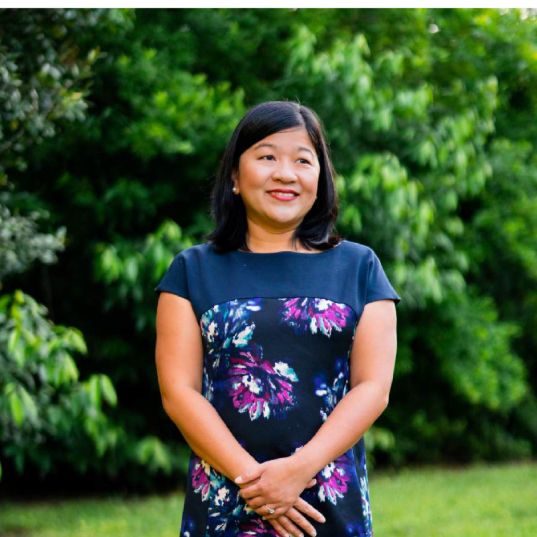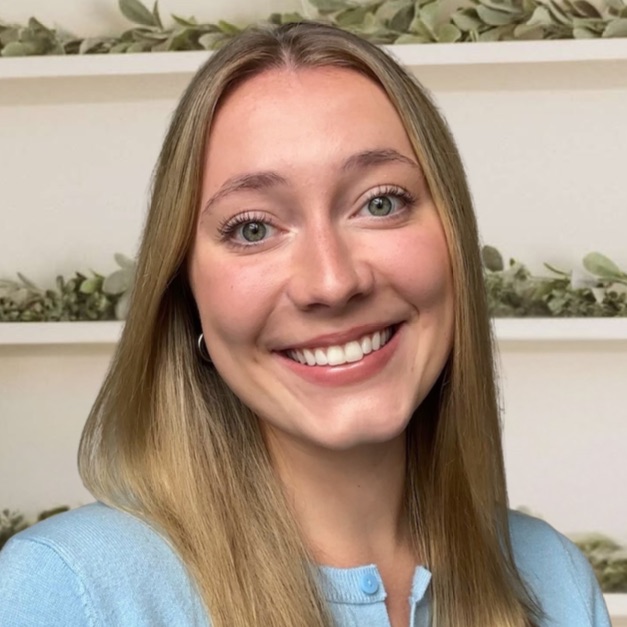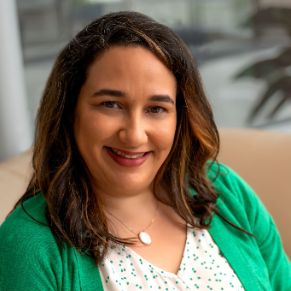Exploring Treatment Choices for Life Transitions in New York City
Life transitions can feel especially intense in New York City, where fast-paced careers, housing changes, and shifting
relationships
are common. Many New Yorkers choose in-person therapy for structure and routine, meeting near workplaces in Midtown or Downtown, or closer to home in neighborhoods like Park Slope, Astoria, or the Upper West Side. Teletherapy offers flexibility for those navigating long subway rides, irregular shifts, or commuting via LIRR, Metro-North, or the Staten Island Ferry. You can explore individual therapy for tailored support or group therapy to connect with peers experiencing similar changes, such as career shifts, parenthood, or relocation. MiResource helps you compare options by filtering providers by therapy approach (like CBT, psychodynamic, or mindfulness-based), insurance, languages, and appointment times.
Access to care in NYC often depends on timing and transit, whether you’re scheduling sessions between classes in Morningside Heights, after work in FiDi, or during a lunch break in Hudson Yards. If you prefer evening or weekend availability, MiResource lets you quickly surface providers who match your schedule and offer telehealth to avoid rush-hour delays. For those seeking community, group offerings in community centers or clinics across Brooklyn and Queens can reduce costs and build support networks. Students, freelancers, and caregivers can filter for sliding-scale options and specialized life-transition support, including
grief
, retirement, or major moves. With MiResource, you can narrow choices to a manageable list and book with confidence based on location, modality, insurance fit, and real-time availability.
Local Programs and Community Partners
New York City offers a strong network of local programs and partners to navigate life changes, from career shifts to caregiving and immigration. On the Lower East Side,
Henry Street Settlement
and
The Door
provide counseling, workforce readiness, and youth support, while
SAGE
in Chelsea uplifts LGBTQ+ older adults with community groups and legal/benefits help.
NAMI-NYC
hosts peer-led groups in Kips Bay that ease transitions like grief, new diagnoses, or role changes, and the
New York Public Library
’s career services—at branches from the Schwarzman Building near Bryant Park to Harlem—support job seekers with coaching and workshops. These community anchors, alongside city services like
NYC Well
, complement MiResource’s therapist directory by surrounding you with practical help and a sense of belonging.
Across the boroughs,
Queens Community House
in Forest Hills and
CAMBA
in Flatbush guide families through housing, employment, and school transitions, while
Hot Bread Kitchen
at La Marqueta in East Harlem helps women and immigrants reenter the workforce.
Upwardly Global
in the Financial District supports immigrant professionals restarting careers, and
Senior Planet by AARP
in Chelsea offers tech and social programs that make later-life transitions feel connected and empowering. For youth and young adults,
Hetrick-Martin Institute (HMI)
near Astor Place and the
Ali Forney Center
provide affirming spaces to navigate identity, housing, and school changes. Whether you’re near Central Park, crossing the Brooklyn Bridge, or settling into a new neighborhood, these nonprofits and peer networks work hand-in-hand with MiResource’s Life Transitions therapists to meet both emotional and day-to-day needs.
Urgent Help for Life Transitions in New York City
If you’re in immediate danger, call 911 and, in New York City, you can request a B-HEARD response where available. For immediate support, call or text 988; local options include NYC Well at 1-888-NYC-WELL (1-888-692-9355) and Samaritans of NYC at 212-673-3000. You can request a NYC Mobile Crisis Team through 988 or NYC Well for an in-person response. If you need an ER, go to NYC Health + Hospitals/Bellevue (212-562-4141), Mount Sinai Hospital (212-241-6500), NYU Langone Tisch Hospital (212-263-5550), or NewYork-Presbyterian/Weill Cornell (212-746-5454). For urgent care, consider CityMD (844-824-8963) or NYU Langone Urgent Care (646-501-7300).
Key Insights Into Life Transitions
Life transitions
are the big and small changes that shift your daily life—like moving, starting or ending a job or relationship, becoming a parent, or coping with loss—especially common in a fast-moving place like New York City. During these times, you might feel stressed or anxious, have mood swings, trouble focusing, changes in sleep or appetite, or feel overwhelmed or isolated. These reactions are common and valid, and understanding them helps you name what you’re going through and take steps that fit your needs. With the right support, you can navigate change with more confidence and stability.
Spotting Potential Warning Signs
Change is part of life, but big shifts can feel overwhelming—especially in a fast-moving place like New York City. If you’re noticing new patterns that make daily life harder, you’re not alone, and reaching out early can make the path forward gentler.
- Feeling unusually anxious or on edge, like your thoughts are racing or you can’t “turn off” worry
- Persistent sadness, emptiness, or tearfulness that lingers longer than a few days
- Trouble sleeping (too little or too much), vivid dreams, or feeling unrested even after sleep
- Changes in appetite or energy—skipping meals, stress-eating, or feeling drained and unmotivated
- Difficulty concentrating or making decisions, even about simple things
- Withdrawing from friends, family, or activities you usually enjoy
- Feeling stuck, lost, or unsure of your identity or direction after a major change (new job, move, breakup, loss)
What Contributes to Life Transitions
Life transitions are a normal part of being human, and many people in New York City experience them at different points in life. They can arise from a mix of factors, and needing support is completely valid. These changes are not a personal weakness or failure. With the right resources, you can navigate them with care and strength.
- Biological: shifts in sleep or energy; hormonal changes (e.g., postpartum, menopause); medical issues or new diagnoses.
- Psychological: stress or burnout; grief or loss; past experiences shaping coping skills.
- Environmental: changes in housing or neighborhood; job or school transitions; financial or caregiving pressures in a fast-paced city.
How Life Transitions Shapes Daily Life
Life transitions can feel especially intense in New York City, where fast-paced routines and constant change are part of daily life. Whether you’re starting a new job, moving apartments, navigating caregiving, or coping with loss, these shifts can ripple through your schedule, energy, and relationships. If you’re feeling off balance, you’re not alone—support can help you regain stability, set healthy routines, and make confident choices. Reaching out for care now can reduce stress and help you feel more grounded in the city’s day-to-day demands.
- Work and career changes
- School, classes, and focus
- Family roles and caregiving
- Relationships and social connections
- Physical health, sleep, and energy
- Mood, stress, and motivation
- Finances and daily routines (commute, meals, planning)
Effective Treatments for Life Transitions
Navigating life changes can be challenging, but proven, short-term therapies can help you adapt, build resilience, and move forward with confidence. In New York City, many clinicians specialize in evidence-based care tailored to career shifts, relationship changes, parenthood, relocation, and other transitions. With the right support, you can turn this period into an opportunity for growth and well-being.
- Cognitive Behavioral Therapy (CBT): Builds practical skills to reframe unhelpful thoughts, reduce stress, and create step-by-step action plans for change.
- Acceptance and Commitment Therapy (ACT): Helps you handle difficult emotions while clarifying values and taking committed actions aligned with what matters most.
- Interpersonal Therapy (IPT): Focuses on role changes, grief, and relationship patterns to improve communication and support during transitions.
- Problem-Solving Therapy (PST): Teaches a structured approach to identify challenges, generate solutions, and implement effective next steps.
- Mindfulness-Based Stress Reduction (MBSR): Uses mindfulness and breathing practices to reduce anxiety, improve focus, and increase emotional balance.
- Group Therapy and Peer Support: Provides connection, shared strategies, and encouragement from others navigating similar life changes.
Quick Answers for Life Transitions Therapy in New York City
1. Can Life Transitions happen to anyone?
Yes—life transitions can happen to anyone, regardless of age, gender, or background, and that’s especially true in a fast-moving place like New York City. There’s no shame in struggling with change; it’s a normal part of being human. Certain factors—such as major life events, financial or housing stress, caregiving responsibilities, immigration or cultural adjustments, discrimination, or health changes—can make transitions feel more intense. Support is available, and reaching out is a strong step toward steadier footing.
2. Is Life Transitions just stress or something more serious?
Everyday stress comes and goes, but Life Transitions can bring deeper, longer‑lasting changes in mood, sleep, appetite, or focus that make it hard to cope. If you’re feeling persistently overwhelmed, stuck, irritable, or withdrawn for weeks—or it’s affecting work, school, or relationships—it may be more than temporary stress. These signs suggest it’s time to get support. In New York City, effective, evidence‑based help is available, and most people feel better with professional care.
3. What are some misconceptions about Life Transitions?
Many people think life transitions are always negative or a sign you’re failing, but change—new jobs, moves, relationships, or identity shifts—can be stressful and growth-producing at the same time. Another myth is that you should “power through” alone; in NYC, seeking therapy or community support is a healthy, proactive step that helps you adapt faster and feel less isolated. People also assume transitions follow a quick, linear timeline; in reality, adjustment comes in waves, and it’s normal for progress to take time and look different for everyone. And it’s not only major milestones that matter—smaller shifts like changes in routine or roles can be meaningful and worth care and attention.
4. Can Life Transitions improve without treatment?
Some people find that the stress and uncertainty of life transitions ease over time without formal therapy. However, working with a life transitions therapist in New York City can speed healing, provide structure, and help prevent relapse. Professional support helps you build lasting coping skills, strengthen relationships, and navigate change with confidence. If you’re ready, help is available here in NYC to support your next step.
5. How do I talk about my Life Transitions with family or friends?
Start by choosing what you’re comfortable sharing and set clear limits—“I’m getting help for Life Transitions, and I’m open to talking about how I’m doing, not the details.” Let loved ones know how they can show up: “I’d appreciate support by checking in once a week and respecting my space when I say I need a break.” If conversations feel intense, pause or change topics and revisit later—“Thanks for caring; I’ll share more when I’m ready.” You can also share resources like a brief article on life transitions, your therapist’s info, or a New York City support group/MiResource link so they understand what you’re navigating.
6. Who is qualified to diagnose Life Transitions in New York City?
In New York City,
psychiatrists
(MD/DO), psychologists (PhD/PsyD),
psychiatric nurse practitioners
, and licensed clinical social workers are licensed to diagnose mental health conditions related to life transitions; other licensed therapists (such as LMHCs and LMFTs) can evaluate and treat these concerns and, when appropriate within their scope, provide or coordinate a diagnosis. MiResource lists only vetted, licensed providers in New York City who are qualified to deliver accurate diagnoses and safe, effective care.
7. What usually happens in a first therapy session for Life Transitions?
In your first Life Transitions session in New York City, you’ll start with simple introductions and a brief overview of how therapy works. You’ll be invited to share some personal background and what changes or challenges brought you in. Together, you and your therapist will discuss your immediate concerns, what’s been hard, and what support might help right now. You’ll then set initial goals and a plan for your next steps, at a pace that feels comfortable for you.













